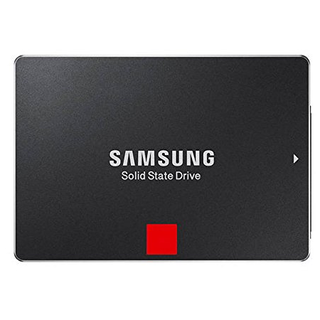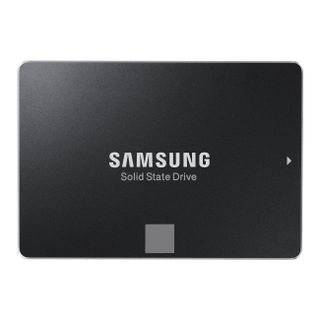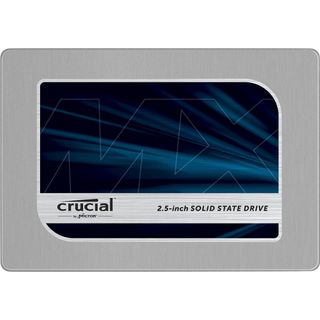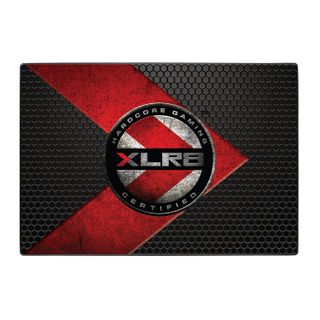PNY CS2211 XLR8 SSD Review
PNY released two new consumer SSDs that employ Phison's S10 controller. Today, we're looking at the CS2211 model, sporting Toshiba MLC flash. This enthusiast-oriented drive was designed for gaming and 4K video.
Why you can trust Tom's Hardware
Four-Corner Performance Testing
Comparison Products
The CS2211 family falls between the mainstream and premium segments. It's a broad swathe of the storage market, and every SSD manufacturer has at least one drive contending for attention in this area.
Our benchmark charts include the two highest-performing SATA SSDs, Samsung's 850 Pro and SanDisk's Extreme Pro. The 850 EVO falls into this group as well, selling for a very low price. In fact, the 850 EVO's value is such that it's the most attractive option for most enthusiasts. The only other TLC-based SSD in this group is SanDisk's Ultra II.
Crucial's MX200 and Intel's SSD 730 also give us viable comparisons, though they rarely stand out against the group's entrenched incumbents.
Data Type Performance Comparison


The S10 controller, like the S9 and S8 before it, loses when we move incompressible data through it in 4KB blocks. Of course, in the real world, your drive is going to encounter a mix of compressed and compressible files.
To read about our storage tests in-depth, please check out How We Test HDDs And SSDs. Four-corner testing is covered on page six of our How We Test guide.
Sequential Read Performance


Phison-based SSDs tend to perform well in our sequential read tests; it doesn't matter if the data is compressed or compressible.
Sequential Write Performance


The recent v.1.6 firmware update increased sequential write performance, helping move S10-based drives up a performance tier. Now, SSDs like the CS2211 are nearly as fast as Samsung's 850 Pro and SanDisk's Extreme Pro in real-world-applications.
In the two sequential write charts above, we see how performance differs between the 240GB and 480GB CS2211s. PNY rates each drive differently, and our results fall in line with the company's specifications.
Random Read Performance



In the random read test with small blocks of data, we focus almost exclusively on shallow command queues. On most desktops, you'll almost never see a queue depth greater than four.
We like it when we see results in excess of 10,000 IOPS at a queue depth of one; this is an indicator of a premium solid-state storage product. PNY's CS2211 gets there, but only when it's working with compressible data. Our charts reflect incompressible workloads, which forces the CS2211 down to 88,000 IOPS.
It's notable that the CS2211 drives do not use an emulated SLC buffer like many of the other products that go up against it.
Random Write Performance



If we could pick one discipline for Phison to focus on improving, it'd be random write performance with 4KB blocks of data. At a queue depth of one, the CS2211s fall to the bottom of our chart. At least they recover nicely at a depth of two. You might see this while multi-tasking, for instance. At a queue depth of four, both of the CS2211 drives we're benchmarking fare well against the 850 Pro and Extreme Pro SSDs.
Current page: Four-Corner Performance Testing
Prev Page Specifications, Pricing, Warranty And Accessories Next Page Mixed Workload And Steady StateStay on the Cutting Edge
Join the experts who read Tom's Hardware for the inside track on enthusiast PC tech news — and have for over 25 years. We'll send breaking news and in-depth reviews of CPUs, GPUs, AI, maker hardware and more straight to your inbox.
-
ubercake Like the article states, it's hard to beat the Samsung 850 EVO price/performance/5-year warranty value. Simply because of the 5-year warranty on the 850 EVO in addition to their competitive performance, I bought my first non-pro edition of an SSD.Reply -
JQB45 Warranty is the most important thing I consider when buying an SSD, then price, then speed.Reply -
xenomega I always try to buy from a company like PNY, that's based and manufactures in the USA. That's the most important thing I consider.Reply -
JQB45 Reply17816142 said:I always try to buy from a company like PNY, that's based and manufactures in the USA. That's the most important thing I consider.
They might assemble the SSD here but both the controller and MLC Flash are designed and created in other countries. -
mapesdhs Typo in the Comparison summary table, it says 850 Pro 500GB where presumably it should be 850 EVO 500GB.Reply




